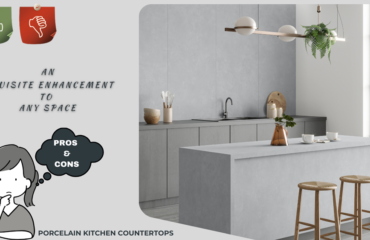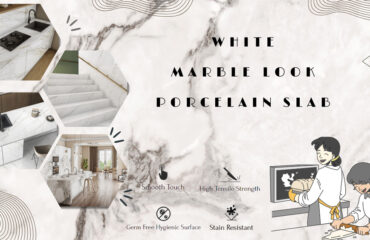Highlights
- Porcelain Floor Tiles: A Valuable Architectural Option
- Introduction to Porcelain Floor Tiles & Slab
- The Benefits of Porcelain slab for Large Architectural Surfaces
- Porcelain Slab for Countertops & More
- Tips for Choosing the Right Porcelain Tile and SLAB
- Installing Porcelain Tiles or Slabs for Long-Lasting Performance
- Make certain that the alignment and spacing is appropriate.
- Conclusion
- FAQs
Porcelain Floor Tiles: A Valuable Architectural Option
Porcelain tiles could be a great selection if you want a long-lasting and attractive flooring option.
Porcelain slab is a form of ceramic tile that is more resistant to other and is also very easy to clean and maintain. The durability of normal tile is combined with a gorgeous finish that can give character to any space when you choose porcelain floor tiles. Porcelain slab also offers more design options because it can be utilised in both small and large format sizes. Porceko Porcelain slab has distinct benefits over other materials when it comes to large-scale architectural surfaces, such as spectacular flooring installations or walls covered in lovely tiling and slab.
In this article we will cover why porcelain floor tiles and slab are an ideal choice for architectural projects. We will also provide advice on the best types of porcelain tiles and slab for different applications.
Introduction to Porcelain Floor Tiles & Slab
Using Porceko porcelain floor tiles and slabs can transform your architectural project into something wonderful and timeless. Nothing beats the endless beauty, durability, and performance of porceko porcelain tiles & slab
Clay-based minerals that are fired at high temperatures to create a solid product that is resistant to moisture, stains, and wear are used to create porcelain tile and slab. Porcelain floor tiles, in addition to being highly durable and easy to maintain.
Porceko provide High Tensile Strength, Stain Resistant, and Anti Bacterial.
when glazed, which makes them a great choice for both indoor and outdoor applications .
such as bathroom floors, walkways, showers, patios, kitchens and also there are many Utility Areas.
Whatever your application needs may be, from classic stone looks to contemporary wood inspired designs. With so many colour options available in porceko.
When I talking About the porcelain slab, interior best choice of porceko porcelain slab just because they are provide a such best premium of Collections, Colour’s, Surface and Durability.
The Benefits of Porcelain slab for Large Architectural Surfaces
When it comes to large architectural surfaces, porcelain slab offers several advantages. It is especially well-suited for high-traffic areas like lobbies, corridors and stairways, as well as outdoor areas because of its resistance to moisture, stains and scratches. Porcelain slab is also a great choice for large surfaces because of its low porosity. This means it does not absorb dirt or liquids easily, making it easier to clean and maintain.
Moreover, porcelain slab provides excellent durability and longevity. Its strength and durability make it a great choice for flooring in high-traffic area . when heavy furniture is moved around or when footsteps are walked over. Porcelain tiles also come in a variety of colors and finishes, so they can easily match any architectural style or design preferences. And due to their low maintenance requirements and long life span, porcelain floor tiles are an excellent value for architects who want to create beautiful interiors while sticking within budget.
Porcelain Slab for Countertops & More
In a variety of applications we can used Porcelain slabs . These massive tiles can be used to create exquisite kitchen countertops, storage, and other architectural components that will bring a sophisticated touch to any space. The advantages of porcelain are not limited to the floor; it can be used in a variety of applications that demand a sturdy, aesthetically beautiful material. Here are some of the key advantages porcelain slabs offer when used for an architectural purpose:
- Strength Porcelain is incredibly hard, making it resistant to scratches and other damage from everyday wear and tear. It is also resistant to water damage as well as staining.
- Durability Unlike natural stone, which typically needs to be sealed regularly.
- Porcelain does not require any ongoing maintenance or repair over its lifespan.
- Low Maintenance Porcelain does not require sealing or waxing like other surfaces do to maintain it’s beautiful finish for years to come.
Porcelain slabs are ideal for creating stunning countertops, shelving and architectural pieces without compromising on durability or low maintenance requirements.
Tips for Choosing the Right Porcelain Tile and SLAB
When it comes to choosing the right porcelain tiles and slab for your project. There are a few key tips to consider
Quality Control
When selecting porcelain tiles or slab, look for with ISO-9002 quality control certification. This ensures that the porcelain tile or slab has been manufactured with high-quality standards and will last longer.
Product Grade
Make sure to evaluate the product grade carefully.this is important for the longevity of your flooring. Choose a product that can handle heavy foot traffic and be sure to ask about skid resistance ratings too. Make certain that this is checked when purchasing. There are several features available in Porceko, including Germ Free Hygienic, Stain Resistant, and High Tensile Strength.
Sizing Options
When it comes to using porcelain slab in architectural projects, you’ll need large sizes this is one of the main advantages of using porcelain flooring! Be sure to review all sizing options before making your final selection in order find the most suitable option for your project.
Identify the Objective
Take into consideration where you want to install the porcelain tile or slab. Is it designed for flooring, walls, counters as well as or outdoor use? Specific needs, like as durability, slip resistance, or moisture and stain resistance, may exist in different regions.
Maintenance and longevity
Examine the tile or slab’s upkeep requirements. Although porcelain is generally low-maintenance, some finishes require particular care. In addition, consider the material’s durability, especially if it will be subjected to considerable foot traffic, extreme temperatures, or outside environments.
Professional Advice
Consult a professional interior designer or Architect that specialises in tile or slabs installations if you are unclear or overwhelmed by the possibilities. They can offer helpful advice, recommend appropriate products, and lead you through the choosing process.
Installing Porcelain Tiles or Slabs for Long-Lasting Performance
If you’re looking for sustainable, long-lasting flooring, porcelain tiles should definitely be on your radar. Because of its unique material composition, porcelain tiles have excellent longevity and durability when installed properly. Here are some of the benefits that come with installing porcelain tiles for long-lasting performance
Make certain that the alignment and spacing is appropriate
To achieve continuous and equal spacing between tiles or slab, use tile spacers. This aids in the creation of a professional-looking installation and enables for the application of grout. Ensure that the tiles or slab are properly aligned and level during the installation process.
Water Resistance
Porcelain tiles or slab are rated to withstand high levels of water absorption without damage or deformation – up to 0.5% in some cases. This makes them ideal for damp or wet areas like showers and pools, allowing them to maintain their shape and structure even in wet conditions.
Slip Resistance
Porcelain tiles are also slip-resistant, making them a great option for surfaces that will see a lot of foot traffic or may be slippery when wet. This is especially important if you plan on using the flooring in bathrooms or other wet areas.
Durable Finish
Finally, porcelain tiles offer a durable finish that can withstand scratches, dents and scrapes better than other materials such as wood or stone. Porcelain floors can keep looking new well into their lifetime, making them ideal for busy households with pets or children.
Conclusion
Porcelain floor tiles or slabs are an increasingly popular material for architects and homeowners alike, and for good reason. Porcelain is an incredibly durable material, impervious to water and stains, and is available in a variety of sizes and colors. Its versatility makes it ideal for a wide range of applications, from Countertop, Table Top, Staircase, Door and Window Frame, Wall Cladding and Flooring, Vanity and many more
FAQs :-
1. What is porcelain floor tile?
Porcelain floor tile is a type of ceramic tile that is more durable and resilient than other tiles. It is very easy to clean and maintain, making it a popular choice for flooring that can last a long time. Porcelain floor tiles come with varying finishes to suit any style of architecture.
2. What are the benefits of choosing Porceko Porcelain slabs for large-scale architectural surfaces?
Porceko Porcelain slab has unique advantages compared to other materials when it comes to large-scale architectural surfaces, such as spectacular flooring installations or walls covered in lovely tiling and slab. It provides durability, longevity, toughness to withstand a lot of foot traffic, and it has stain resistance properties which increases longevity making it an ideal choice for architectural projects and high-end interiors.
3. What is Porceko porcelain slab?
Porceko porcelain slab is a high-quality porcelain material that offers a variety of colour options and different surface styles – including classic stone looks and contemporary wood-inspired designs and.
4. What are some advantages of using porcelain slabs for architectural purposes?
Porcelain slabs offer several advantages for architectural purposes. Porcelain is incredibly hard, making it resistant to scratches, and is also resistant to water damage and staining. Unlike natural stone, porcelain does not require regular maintenance or repair over its lifespan and is low maintenance with no need to seal or wax the surface to maintain its beautiful finish.
5. What is the water resistance of porcelain tiles or slabs?
up to 0.5% in some situations, without damage or distortion , Porcelain tiles or slabs are rated to ensure high levels of water absorption.




